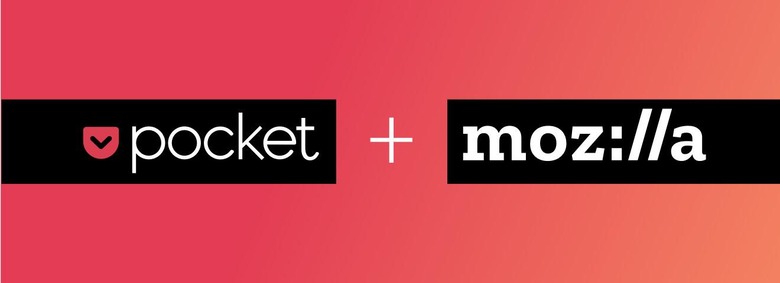Mozilla Acquires Pocket Read-It-Later Service
Mozilla might be best known as the creators of the Firefox web browser but it has also dipped its fingers in a few other products as well. Most notable is the Thunderbird e-mail client/PIM suite and most recent is Firefox OS for mobile and then for IoT. But here's the rub: none of those endeavors have survived the test of time or of the market. Undaunted, Mozilla has just made its "first strategic acquisition" by buying Pocket, one of the most popular "read-it-later" services on the Web.
Pocket was actually called "read-it-later" at one point in time before it switched to a more catchy but less intuitive "Pocket". Together with Instapaper, the two represented the top two independent services in the market. Of course, they're not longer independent now. Instapaper was surprisingly purchased by Pinterest last year and now Pocket has joined Mozilla's team.
As with any acquisition, the biggest question is "what happens now?". Pocket assures its users that it's business as usually. It will continue to exist as an independent but wholly-owned subsidiary. It will continue to operate as it has always done, but now with perhaps greater reach and visibility thanks to Mozilla's clout.

For Mozilla, this would mean having a built-in read-it-later service not unlike Apple's Safari. But, then again, that's really nothing new either. Last 2015, Mozilla and Pocket actually announced a partnership that baked a Pocket button right into Firefox, at least for the desktop. As Firefox is commonly seen as a poster boy for the open source world, the move unsurprisingly earned much criticism. This acquisition simply cements that partnership, though it remains to be seen whether there will be any change as far as Pocket's proprietary nature goes.
Another big question will be one of revenue. Mozilla is a non-profit organization while Pocket is for-profit company, in addition to being a proprietary service. It gets its revenues from ads and subscription fees to remove those ads, a market that Mozilla has unsuccessfully tried to enter. Pocket could very well be an indirect way for Mozilla to profit from that while still keeping its core Firefox product mostly, but not completely, clean.
